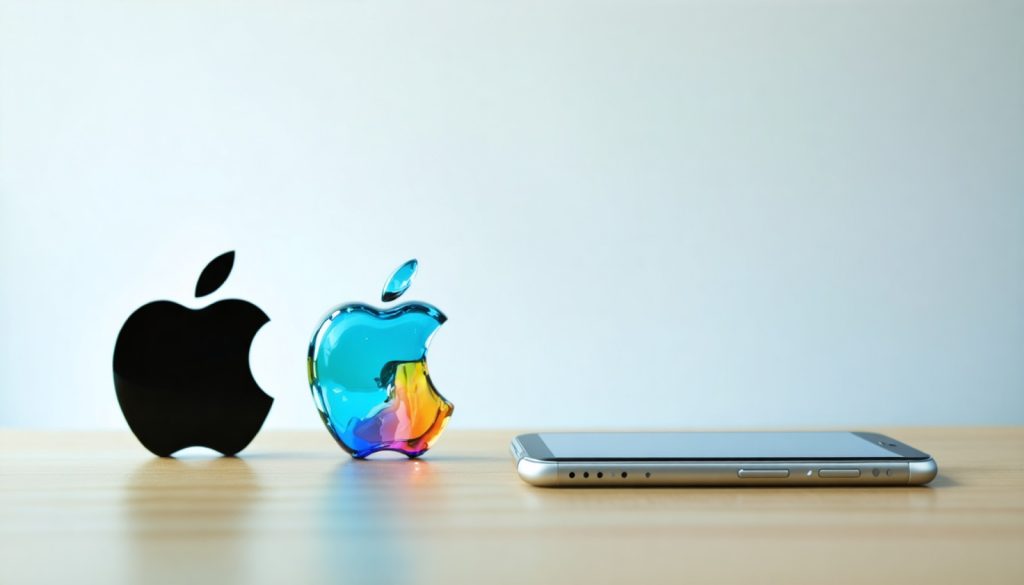
- Apple emerges as the leading player in the global smartphone market, commanding 19% market share over Samsung’s 18%.
- Tata Consultancy Services (TCS) rises to become the second-largest IT services firm with earnings over $30 billion, driven by strategic innovations.
- Samsung launches the Galaxy M56 5G in India, highlighting affordable durability and style.
- Xiaomi’s Redmi A5 offers long-lasting performance with a 5,200mAh battery, catering to budget-conscious consumers.
- Infosys faces challenges with layoffs, cutting 240 trainee positions due to performance issues.
- Anmol and Puneet Singh Jaggi are under investigation for alleged misuse of funds intended for electric vehicles (BluSmart EVs).
- HP and Asus introduce advanced gaming and AI-empowered laptops, showcasing ongoing innovation in tech.
- The tech landscape is marked by a blend of ambition, innovation, and ethical considerations.
On the ever-shifting stage of global technology, Apple clutched the spotlight by seizing the crown of the smartphone market in the first quarter of 2025. Outpacing its fierce rival Samsung by a hair’s breadth, Apple now commands 19% of the market share compared to Samsung’s 18%. This victory is not just another statistic; it symbolizes Apple’s resilience and dominance amidst a turbulent tech landscape. While the world grapples with economic instability and trade skirmishes, the tech leviathan’s growth underscores the seismic shift towards tech in emerging markets and China’s bolstered demand.
Simultaneously, Tata Consultancy Services (TCS) roared up the ranks to become the world’s second-largest IT services firm. With earnings surpassing $30 billion, TCS’s ascent is a testament to strategic foresight and relentless innovation. Under the guiding hand of CEO K Krithivasan, the company has solidified its stature as a beacon of transformation and adaptability in the tech space, trailblazing the path with its ‘Perpetually Adaptive Enterprise’ narrative.
Echoing through India’s vibrant tech corridors is Samsung’s latest offering, the Galaxy M56 5G. Sleek, powerful, and attractively priced starting at Rs 24,999, the smartphone lands in the arms of consumers with its 50MP camera arsenal and Gorilla Glass fortifications. Positioned as a champion of durability and style, this device highlights Samsung’s commitment to expanding its demographic reach in India—a country that pulses as the heart of the smartphone revolution.
Meanwhile, Xiaomi’s Redmi A5 basks in the spotlight with its hefty 5,200mAh battery, proving that power-packed gadgets aren’t solely the domain of higher price brackets. Priced accessibly for the masses, it promises long-lasting performance and reliability.
Yet, not all in the tech world is celebratory. Infosys made headlines with a sobering wave of layoffs, trimming 240 trainee positions after insufficient assessment results. Such measures reflect the harsh adherence to standards in the corporate tech culture—a reminder of the competitive ecosystem within giants.
The landscape of tech is witnessing not only towering achievements but also the stirring of controversies. Anmol and Puneet Singh Jaggi find themselves embroiled in a financial tempest, accused of misusing funds earmarked for electric vehicles. The promise of BluSmart EVs was tainted by allegations of fund diversion for luxurious ends. As regulatory bodies extend their scrutiny, the story unfolds a cautionary tale of governance and ethical boundaries in business.
Amid these narratives, HP’s unveiling of the Omen Max 16—a beast of a gaming laptop—is aimed squarely at wielding the ultimate power and performance promised by cutting-edge hardware. With Asus entering the fray with AI-empowered laptops targeting professionals, the tech sector is rapidly evolving, characterized by an undying thirst for innovation and adaptation.
In the relentless advance of technology, the takeaway is unmistakable: The fierce interplay between ambition, innovation, and integrity will dictate the pulse of tomorrow’s technological world. Each milestone achieved serves as both an illumination of potential and a cautionary precedent for those who trailblaze after.
How Apple Outpaced Samsung in the Global Smartphone Race
Overview
In the first quarter of 2025, Apple emerged as the leader in the global smartphone market, securing 19% market share and surpassing Samsung by a narrow margin. This remarkable achievement reflects not only Apple’s innovative prowess but also its strategic adaptability in a challenging global economic landscape.
Insights and Key Factors for Apple’s Success
1. Product Innovations and Ecosystem Integration:
– Apple’s success is largely driven by its continuous innovation and robust ecosystem. The seamless integration between devices like the iPhone, Apple Watch, and MacBook creates a compelling reason for users to stay within the Apple ecosystem.
2. Strength in Emerging Markets:
– The expanding demand in emerging markets, notably in China and India, has been pivotal for Apple’s growth. Strategic pricing and localization efforts tailored for these markets have enabled Apple to capture new audiences.
3. Prioritization of Customer Experience:
– Apple’s focus on quality, design aesthetic, and customer service has fostered a loyal customer base, enhancing brand equity and retention rates.
4. Supply Chain Resilience:
– Amid global trade tensions and supply chain disruptions, Apple’s ability to maintain production efficiency and meet consumer demand has been a testament to its operational resilience.
Comparative Analysis: Apple vs. Samsung
– Design and Technology:
Apple’s design philosophy emphasizes simplicity and innovation, setting a benchmark for intuitive user interfaces and aesthetically pleasing products. Samsung, meanwhile, focuses on feature-rich devices with cutting-edge technology like foldable screens.
– Market Strategy:
While Apple leverages its brand prestige and premium pricing, Samsung employs a broader range of products catering to various market segments, including budget-conscious consumers.
– R&D and Innovation Focus:
Both companies invest heavily in research and development. However, Apple often leads in terms of setting new industry standards, such as Face ID and augmented reality capabilities.
Broader Tech Industry Trends and Predictions
– Rising Dominance of Indian IT Companies:
Tata Consultancy Services (TCS) rising as the world’s second-largest IT services firm signifies India’s burgeoning role in the global tech landscape. This growth is underpinned by India’s skilled workforce and cost competitiveness.
– Sustainability and Ethical Challenges:
Tech companies, including EV firms like BluSmart, face increasing scrutiny over ethical practices and sustainability. As consumers and regulatory bodies demand greater transparency, companies must prioritize integrity and environmental responsibility.
– AI and Gaming Innovations:
With HP and Asus introducing AI-enhanced laptops and gaming computers, the tech industry is poised for rapid advancements that cater to both professional and entertainment needs.
Actionable Recommendations and Tips
– For Consumers:
If you’re considering a smartphone upgrade, assess your needs in terms of ecosystem compatibility, camera quality, and device longevity to ensure value for money.
– For Businesses:
Companies should look to Apple’s strategies in user experience and supply chain resilience as models for navigating complex global markets.
– For Market Watchers:
Keep an eye on emerging markets like India and China, as tech demand from these regions continues to shape global industry dynamics.
For more insights into the world of technology and smartphone innovation, visit the official websites of Apple and Tata Consultancy Services to learn about their latest offerings and corporate strategies.



